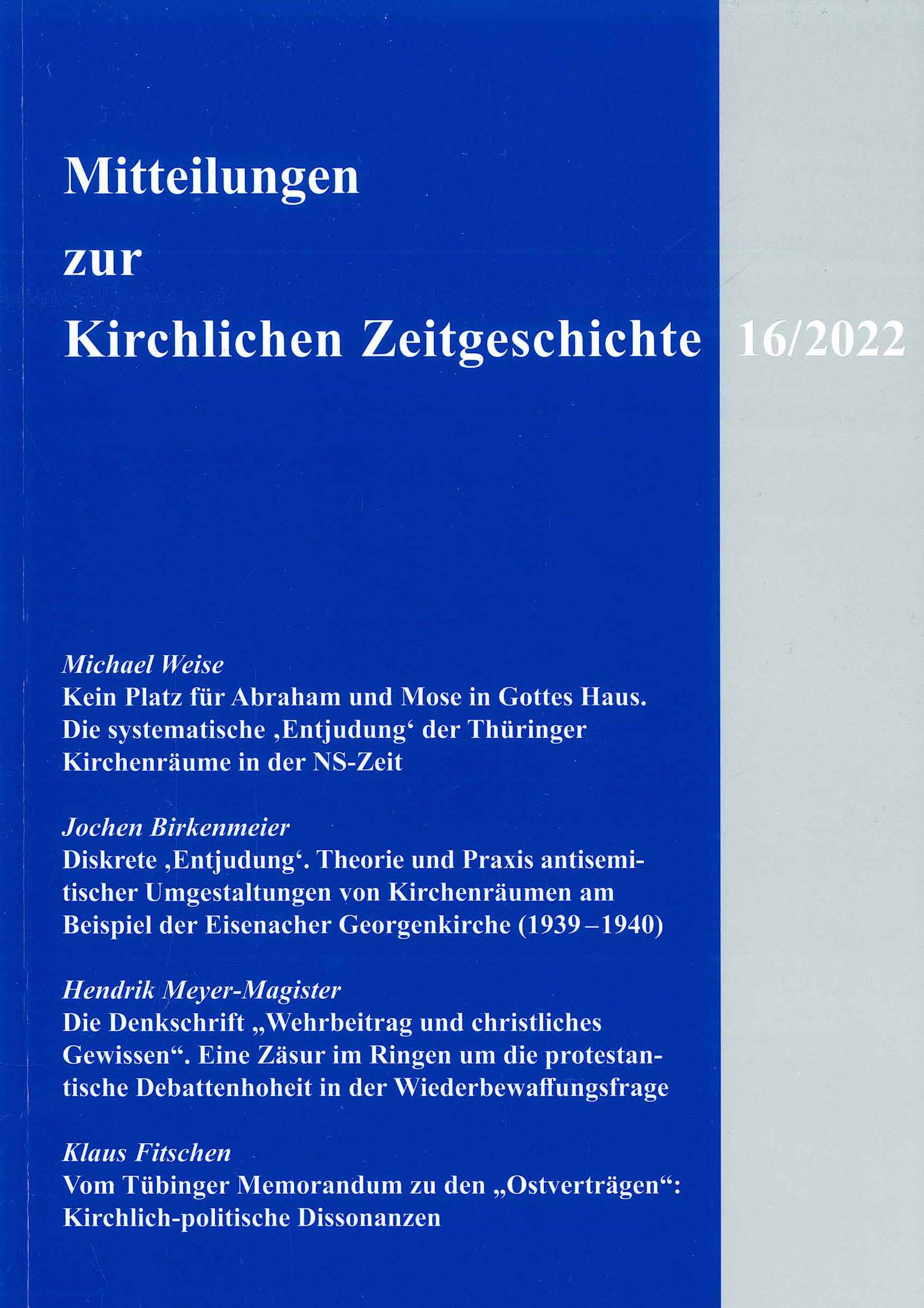History
Appointed by the Council of the Evangelical Church in Germany as „Kommission für die Geschichte des Kirchenkampfes in der nationalsozialistischen Zeit“ (Commission for the History of the Struggle Between Church and State in the National Socialist Era) in 1955, two charges were assigned to the Evangelischen Arbeitsgemeinschaft für Kirchliche Zeitgeschichte in its early stages: On an universal level, building a bridge between members of the “radical” and the “moderate” and simultaneously providing an initial scientific basis for the study of the history of the Protestant Church during national socialist times by collecting document files, founding a library and editing the „Arbeiten zur Geschichte des Kirchenkampfes“ (Studies on the History of the Struggle between Church and State).
Very soon the EvAKiZ’s field of research expanded to the survey of the role of Protestantism in the Weimar Republic and in the period after World War II. At once territorial and everyday history gained in importance. In 1971 the renaming from „Kommission für die Geschichte des Kirchenkampfes in der nationalsozialistischen Zeit“ to „Evangelische Arbeitsgemeinschaft für Kirchliche Zeitgeschichte“ was therefore consequent and documented the thematic diversification as well as a liberalization in direction of social sciences. Complemented with members of the new federal states from 1989 onwards the consortium was engaged in two major research projects concerned with the history of the Protestant Church in the GDR and in the divided Germany.
The second reorientation took place in the 1990s, as the EvAKiZ focused on issues of research on contemporary history in the 1960s and ´70s from a more social historical point of view. This broadening of perspective is datable: It was the jubilee symposium on the 50. anniversary of the EvAKiZ in 2005 which issued the relations between Protestantism and social movements in the 1960s and ´70s and thereby created a lasting enhancement of the research program. The history of Protestantism during the national socialist era nevertheless remained a focal point which, i. a., resulted in two major projects: a comprehensive anthology on 20th century’s Protestant Martyrs and a virtual exhibition about Protestant resistance and its boundaries in the Third Reich.
Bibliography
NICOLAISEN, Carsten: Zwischen Theologie und Geschichte. Zur kirchlichen Zeitgeschichte heute. In: Der Evangelische Erzieher 42, 1990, S. 410-419
MEHLHAUSEN, Joachim: Die Evangelische Arbeitsgemeinschaft für Kirchliche Zeitgeschichte und die Erforschung der Kirchengeschichte der DDR. In: Evangelische Arbeitsgemeinschaft für Kirchliche Zeitgeschichte. Mitteilungen 13, 1993, S. 1-6
SIEGELE-WENSCHKEWITZ, Leonore: Probleme Kirchlicher Zeitgeschichtsforschung. In: Die evangelischen Kirchen und der SED-Staat - ein Thema kirchlicher Zeitgeschichte (Arnoldshainer Texte. 77). Hg. von Leonore Siegele-Wenschkewitz. Frankfurt/M. 1993, S. 142-151
KAISER, Jochen-Christoph: Wissenschaftspolitik in der Kirche. Zur Entstehung der "Kommission für die Geschichte des Kirchenkampfes in der nationalsozialistischen Zeit". In: Kirchliche Zeitgeschichte. Urteilsbildung und Methoden. Hg. von Anselm Doering-Manteuffel und Kurt Nowak (KoGe 8) Stuttgart u.a. 1996, S. 125-163.
OELKE, Harry: Thesen zur Katholizismusforschung – ein Kommentar. In: Wilhelm Damberg / Joseph Hummel (Hg.): Katholizismus in Deutschland. Zeitgeschichte und Gegenwart (VKZG.B 130). Paderborn 2015 , S. 163–168

